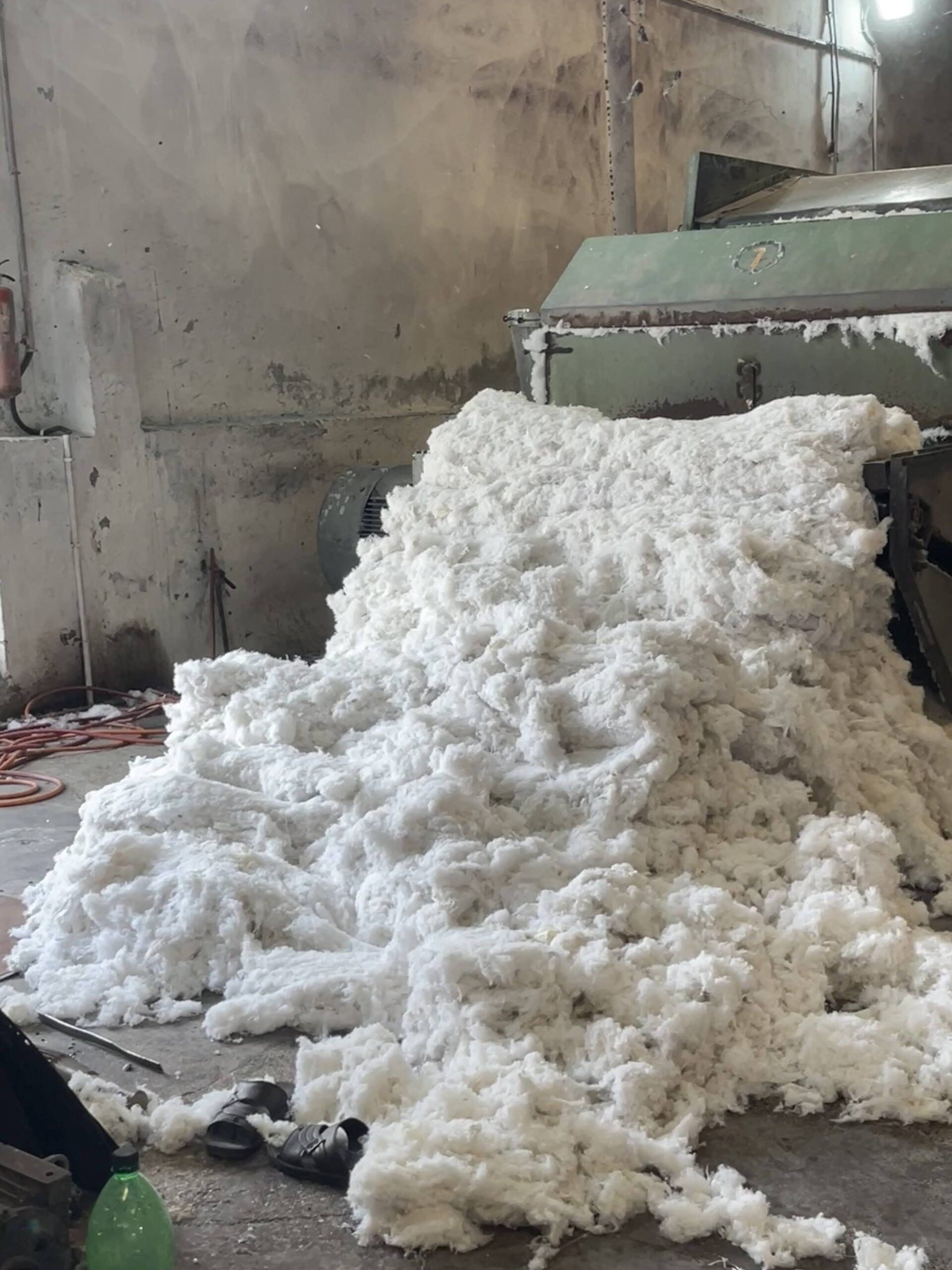
Manufacturing Market Gateways
Cost optimisation is crucial for scaling innovations. By reducing expenses, increasing operational efficiency, and securing high-quality feedstock, innovators can improve profitability and competitiveness. As the industry embarks on new ventures, strategic cost management becomes key to enhancing profitability, improving cash flow, and fostering a culture of continuous improvement. As a response to supporting innovators in building out these strategies, FFG has developed “Manufacturing Markets Gateway”, to support innovators with connections to selected industry partners, local exposure, sourcing feedstock opportunities and overall knowledge building.
Problem Statement
For technologies to scale effectively, they need a reliable flow of high-quality textile waste and strong partnerships with essential stakeholders throughout the textile value chain, especially in key global manufacturing regions. However, most innovators are currently based outside these hubs and rely on carefully curated connections to bring their technologies to market successfully.
Executive Summary
As technologies scale, they need access to steady volumes of high quality textile waste as well as key partnerships within subsequent stakeholders of the textile value chain. Long term scaling plans of most recycling innovators also include establishing facilities closer to the source of feedstock and production. Establishing these facilities will not only lead to the technologies embedding themselves geographically within the manufacturing value chain, but in turn support in reducing price premiums and logistical efficiency.
Manufacturing Markets Gateway is a series of multi-day, international tours through key manufacturing regions to support chemical recycling innovators in their efforts to commercialise their technology. These tours will focus on providing innovators with connections with selected industry partners, local exposure, sourcing feedstock opportunities and overall knowledge building.
Below are some strategies that can be adopted within the industry to support cost optimisation.
-
- Feedstock and Location Strategy:
- Focus on post-industrial feedstock in Asia, where manufacturing hubs provide abundant, high-quality and composition specific materials.
- Leverage Asia’s robust and increasingly formalised waste handler network, bolstered by ongoing infrastructure development.
- Establish recycling operations close to feedstock sources to minimise transportation costs. South and Southeast Asia are particularly advantageous, offering substantial volumes of feedstock that can be processed locally.
-
- Supplier Network & Partnerships:
- Develop a robust supplier network with aligned incentives, potentially through joint ventures or equity participation by suppliers.
- Pursue government subsidies to support innovators’ plant development and advocate for domestic policy initiatives that could accelerate infrastructure growth.
- Consider partnerships with incumbents who possess significant resources. Joint ventures can combine innovators’ cutting-edge technologies with incumbents’ market access and funding capabilities.
-
-
-
-
Goals of the Project
This initiative aims to enable the scaling of FFG market-ready innovators who have successfully undergone assessments and are now deemed ready for implementation. By fostering collaboration among brand partners, strategic suppliers, FFG innovators, and ecosystem partners, we intend to drive innovation, risk-sharing, and chart new implementation roadmaps.
-
Supports material innovators with building knowledge around the local textile production and waste landscape.
-
Supports material innovators with introductory meetings with curated value chain partners, providing opportunities for feedstock as well as production partnerships.
-
-
-
-
Project Results
Since 2023, FFG has carried out multiple iterations of Manufacturing Markets Gateway in five of the biggest textile production hubs globally like India, Turkey, Bangladesh, Vietnam and Indonesia.
-
8Innovators supported
-
19Meetings with suppliers and ecosystem organisations
-
5Participation in Industry events
Relevant Resources

Fashion for Good Unveils Five-year Strategy Shifting to Scale Innovation in Fashion

Fashion for Good and adidas partner to accelerate and scale sustainable innovation in the apparel industry

Fashion for Good closes out first year with cross-industry convening to accelerate and scale daring innovation in fashion

Fashion for Good partners with Zalando to accelerate and scale sustainable innovation in the fashion industry

From Fibre To Finish To Scale: Tracing Viscose And Beyond

Full Circle Textiles Project Focuses on Scaling Polyester Recycling

Scaling Programme Fashion For Good Expands
Other Projects

The Next Stride: Bio-based Materials for Footwear Soles
“The Next Stride: Bio-based Materials for Footwear Soles” aims to validate the performance and environmental impact of bio-based polymers as sustainable alternatives to the fossil fuel-derived materials currently used in footwear soles. The objective is to collectively de-risk the transition to these “next-generation” materials by rigorously testing their technical properties and assessing environmental benefits. Ultimately, the purpose is to accelerate the adoption of these bio-based solutions and pave the way for a more sustainable footwear industry.

Beyond50 Denim: Combining Cottonised Hemp And Green Chemistry
“Beyond50 Denim: Combining Cottonised Hemp And Green Chemistry” aims to validate the performance and environmental impact of cottonised hemp processed with green chemistry to act as a true alternative to cotton in denim applications. The project goal is to evaluate the performance of SEFF’s cottonised hemp fibre in combination with Fibre52’s bio-friendly chemistry solution within denim fabric applications with a total hemp content of 50% and above. The fabrics will be benchmarked against conventional 100% cotton denim with a specific focus on handfeel and aesthetic characteristics.

Price Parity Toolkit
The Price Parity Toolkit (PPT) was designed to help bridge the price gap between next-gen* and conventional materials. Developed by Fashion for Good with the support of Canopy, this industry-supported framework introduces a financing mechanism that decouples price premiums at early stages of the supply chain to enable adoption and drive the scale of lower-impact materials.
